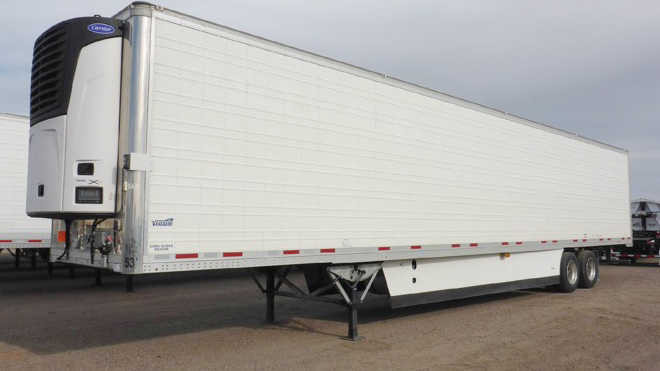Choosing between a dry van and a refrigerated (reefer) trailer for semi-trucking operations depends on various factors, including the type of cargo being transported, market demand, and specific requirements of the business. Let's explore the differences between the two:

Dry Van Trailers:
- Dry van trailers are the most common type of trailers used in the trucking industry.
- They are enclosed and provide protection against weather elements, theft, and damage to goods.
- Ideal for transporting non-perishable goods such as consumer goods, electronics, clothing, and dry food items.
- Dry van trailers are versatile and can accommodate a wide range of cargo sizes and shapes.
- They are typically more cost-effective to operate and maintain compared to refrigerated trailers.

Refrigerated (Reefer) Trailers:
- Refrigerated trailers, commonly known as reefers, are equipped with temperature control systems to transport perishable goods.
- They maintain specific temperature ranges to preserve the freshness and quality of temperature-sensitive cargo such as fresh produce, frozen foods, pharmaceuticals, and floral products.
- Reefers are essential for industries requiring temperature-controlled transportation, such as food and beverage, pharmaceuticals, and healthcare.
- Operating a reefer trailer requires additional considerations, including fuel consumption for the refrigeration unit and adherence to temperature regulations.
- Reefers typically command higher operating costs due to the specialized equipment and energy consumption required to maintain temperature control.
Factors to Consider When Choosing Between Dry Van and Reefer Trailers:
- Cargo Type: Consider the nature of the cargo you will be transporting. If you primarily haul non-perishable goods, a dry van trailer may be suitable. However, if you transport temperature-sensitive goods, a reefer trailer is necessary.
- Market Demand: Evaluate the demand for temperature-controlled transportation services in your area and industry. Assess whether there is sufficient demand to justify the investment in a reefer trailer.
- Business Requirements: Consider your business goals, customer needs, and long-term growth plans when deciding on trailer types. Assess how each trailer type aligns with your business strategy and operational capabilities.
- Operational Costs: Compare the operating costs associated with dry van and reefer trailers, including fuel consumption, maintenance, insurance, and equipment expenses. Factor in the potential revenue opportunities and profitability of each trailer type.
Ultimately, the choice between a dry van and a reefer trailer depends on your specific business needs, the types of cargo you transport, and market demand. Some trucking companies may opt to maintain a mixed fleet with both dry van and reefer trailers to cater to a broader range of customers and cargo requirements.